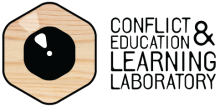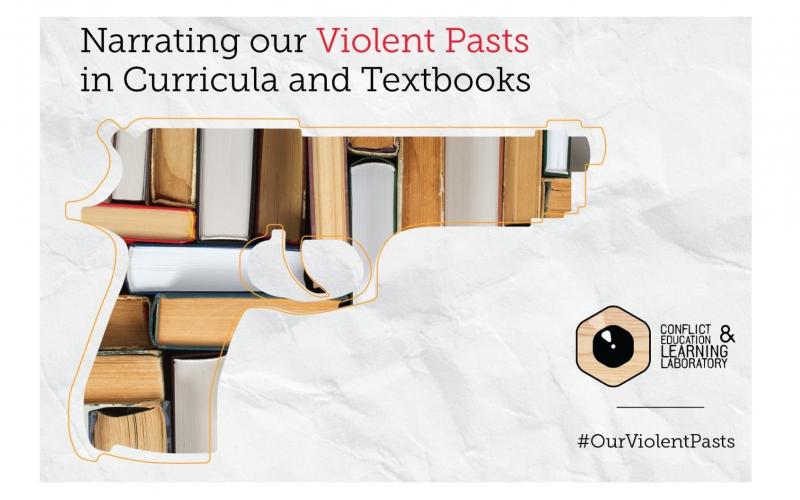March 4th is the last chance to RSVP for the CELL-ECCN webcast, 'From Divisive Stereotypes to Inclusive Identities: The Role of Educational Materials in Crisis and Conflict-Affected Settings.'
Date: Tuesday, 5 March 2019
Time: 4-5pm CET
RSVP here by March 4th at 6pm CET.
Summary
Educational materials, such as textbooks, are fundamental sources from which children and youth develop perceptions of themselves and the societies to which they belong. When such key educational texts include divisive and discriminatory representations or omissions about the past and present, they can reinforce divisions between ‘us’ and ‘them’ and set the stage for conflict and violence. The role of textbooks in perpetuating or overcoming divisive stereotypes, whether in the domain of ethnicity, ‘race,’ gender, or another identity category, must not be underestimated. This webcast aims to examine different approaches to reducing divisive content and promoting inclusive identities within textbooks and other educational media, including reporting on and discussing key outcomes of a recent ECCN Partner Initiative on Violent Pasts, organized by the Conflict and Education Learning Laboratory (CELL). This Partner Initiative brought together experts from different regions of the world, to learn from their varied experiences in dealing with issues of divisive educational content and fostering inter-cultural competencies.
Speakers
Atif Rizvi, Conflict and Education Learning Laboratory (CELL)
Atif Rizvi has worked for over two decades in strategic planning in tertiary education and institution building. He was educated at Harvard University and worked as a Senior Researcher in Education at the Harvard Institute for International Development (HIID). At HIID, he was also the Assistant Editor of The Forum, a joint Harvard-USAID publication dedicated to advancing basic education and literacy. Atif was the Executive Director of the Global Matriculation Initiative (GMI) at the Worldpaper in Boston from 1996 – 1998. Following, he was a consultant for the UNESCO and World Bank Task Force on Higher Education and Society. Between 2002 – 2008, Atif was the Executive Secretary of the UNEP Sasakawa Endowment and the Prize for the Environment. He has also held positions at UNICEF, UNESCO, and the United Nations Secretariat in New York. Mr. Rizvi has worked on achievement assessment, educational access and equity, and basic education delivery in a number of conflict-affected areas.
James H. Williams, George Washington University
James H. Williams is a Researcher and Teacher in the field of International Education and Development. A graduate of Harvard University, James holds the UNESCO Chair in International Education for Development at the George Washington University, and directs the PhD Program in Education at GWU and the cross-disciplinary research team on Education and Inequality: Access and Identity. Dr. Williams has extensive international experience in East and Southeast Asia and Sub-Saharan Africa. Author of more than 50 books and articles, he is editor of a three-volume series of books on education, national identity, and conflict published by Sense/Brill Publishers. Associate Editor of the Journal of Education in Emergencies, he is also a founding member of the Network to Integrate SDG Target 4.7 and SEL Skills into Educational Materials (NISSEM).
Margaret Sinclair, ECCN and NISSEM
Margaret Sinclair is an education planner who has worked on ‘education in emergencies’ since 1987. She is an advocate for education for ‘Learning to live together’ and for the related Sustainable Development Goal Target 4.7. She was technical advisor for the establishment of Education Above All, and led its work on conflict-sensitive planning and curriculum. She worked earlier with UNESCO including support for the establishment of the Inter-Agency Network for Education in Emergencies (INEE). She was previously head of education at UNHCR. Margaret Sinclair is a member of the ECCN SEL Task Team and a founding co-convenor of Networking to Integrate SDG 4.7 and Social and Emotional Learning into Education Materials (NISSEM). Since the start of 2019, she has also taken on the role of Advisor to the Conflict and Education Learning Laboratory.
Robert Hakiza, Young African Refugees for Integral Development (YARID)
Robert Hakiza is a refugee from Congo living in Uganda since 2008. He holds a degree in Agriculture from the Catholic University of Bukavu (DRC), and he’s the Co-Founder and Executive Director of the Young African Refugees for Integral Development (YARID). In 2016, YARID received the Ockenden Prize for its educational program on teaching women self-sufficiency. Mr. Hakiza is also one of the founders of the Refugee-Led Organization Network. He has experience working with urban refugees and also works to educate others about the obstacles that refugees face. In 2013, he worked as an assistant researcher with Oxford’s Humanitarian Innovation Project. He is a TED Fellow and an Aspen New Voices Fellow 2017.
Rebeca Martinez, USAID
Rebeca Martinez is the Reading & Instructional Program Advisor for the USAID Reading and Literacy Team. Prior to joining USAID, she spent five years in the Dominican Republic working on literacy intervention programs and designing pre-service teacher training. Her experience, in the field of education, also includes serving as an Instructional Supervisor for after-school programs in New York City and working as a 3rd grade teacher. Rebeca has a M.A. in International Educational Development from Teachers College, Columbia University and a B.A. in English from DePauw University.
Anđela Draganić
Anđela Draganić is CELL Young Researcher whose research focuses on contested narratives of war and history in Serbia, Croatia, and Bosnia. She is a student of Liberal Arts and Sciences at University College Maastricht. Her focus is on Peace and Conflict Studies with a minor in Security Studies. She has completed International Baccalaureate at United World College (UWC) Dilijan, Armenia. Her experiences in Armenia mainly led to her interest in peacebuilding and reconciliation in regions impacted by conflict. Anđela is also focused on the inclusivity of education. She is working with UWC Serbia and the Organization of Serbian Students Studying Abroad to spread potential educational opportunities to her peers in Serbia. Anđela is currently working on issues of internationalisation of Dutch institutions of higher education, with a focus on Maastricht University.
Arthur Bribosia
Arthur Bribosia is a CELL Young Researcher whose research focuses on measuring the impact of the content of Belgian history textbooks on student’s intercultural sensitivity. He is pursuing a Bachelor of Liberal Arts with a focus on social sciences at the University College Maastricht. His academic interests lie in environmental, cultural and conflict studies. He is also deeply interested in education and history which encouraged him to apply to work with CELL. Next to his studies, Arthur is a Scouts leader in Belgium and is engaged in raising awareness on sustainability and environmental problems amongst the younger generations.
Luka Fleuren
Luka Fleuren is a CELL Young Researcher whose research examines the portrayal of the Netherlands’ colonial past in Dutch history textbooks. She recently graduated from the University College Maastricht (UCM). At UCM, she pursued an interdisciplinary concentration that combined the Humanities and Social Sciences. More specifically, her academic interests lie in the fields of gender studies and cultural studies. She is particularly fascinated by the social construction of markers of difference such as race, sexuality, and gender, and how these shape people’s sense of self and other. In the process of completing her bachelor degree, she spent one semester studying at the Australian National University in Canberra, Australia.

